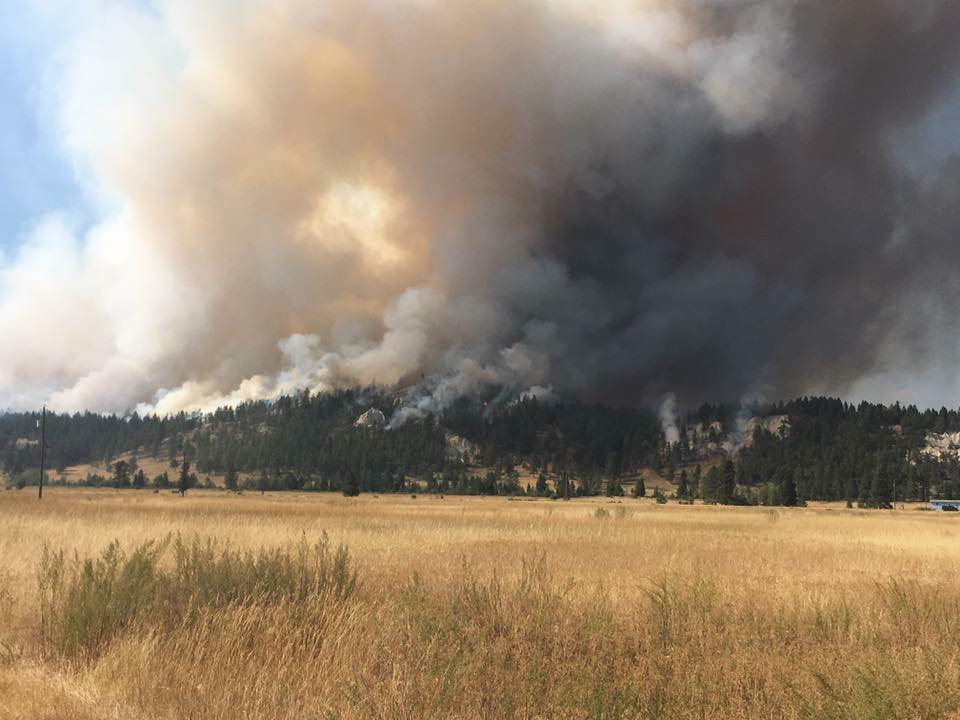CBT donates over $800,000 to mitigate wildfire risk
Wildfire is an ever-increasing hazard in these years of accelerating climate change, and 20 communities throughout the Columbia Basin — including Rossland, Castlegar, Regional District of Central Kootenay and Nelson — will benefit from more than $800,000 in funding from Columbia Basin Trust for wildfire mitigation measures.
For those who wonder why wildfire risk is increasing, please note that climate change can brings us longer and more intense heat-waves with longer periods of drought, just like the long drought in California that resulted in the death and destruction of so many almond orchards. (Checked the price of almonds lately?)
It can also bring more intense rainfall events, earlier snow-melt (though that isn’t apparent here yet this year, with our unusually high snowpack – a phenomenon known as the “polar vortex” is also associated with climate change, and brings unseasonably cold weather to some areas as a result of a weakening and wandering jet-stream. The weakening of the jet-stream is attributed to the much warmer-than-average temperatures in the Arctic this winter.)
Interface fires, such as the one from which Fort McMurray residents had to flee and which destroyed many homes there, can destroy homes and lives in a flash. Mitigation measures can make the spread of such fires into communities less likely, and help diminish the intensity of a fire.
Rossland will be the recipient of a $40,000 grant, and the City will contribute another $10,000, to help residents reduce the hazard of wildfire on private property, and also re-treat previously treated interface lands. Local trail users will be familiar with the appearance of areas treated so far. This year, a new approach will be tested, which is intended to keep more moisture in the forest soils, and avoid burning piles of forest debris.
A press release from CBT quotes Tim Hicks, the Trust’s Senior Manager, Delivery of Benefits:
“Basin communities are part of forested landscapes, which gives us beautiful scenery and rich ecological values but also hazards to communities such as wildfire. Communities are well aware of this risk and came to us for help to both prepare for the possibility of these dangerous situations and to reduce their likelihood. This work aligns with our priority to support community resilience in a changing climate.”
With support from the Trust’s Community Development Program, local governments and First Nation communities are implementing projects focused on educating residents about how they can reduce wildfire risks on their properties, managing wildfire fuels, protecting critical community infrastructure and developing emergency response and evacuation plans. The Trust will continue to accept applications from local governments and First Nations until June 30, 2018. To see the full list of projects funded, visit ourtrust.org/wildfiregrants.
Residents can address some obvious issues on their own, such as clearing vegetation from around the perimeter of buildings – especially vegetation that tends to burn most readily, such as conifers – and choosing fire-resistant materials for building envelopes; masonry stucco is one example, rather than highly flammable and toxic vinyl siding.
People who know of its work are grateful to CBT for all it does to improve life and conditions in the Columbia Basin.
Meanwhile, concerned citizens may wonder when our governments will respond to the causes of climate change with as much urgency as we react to some of its symptoms.
























